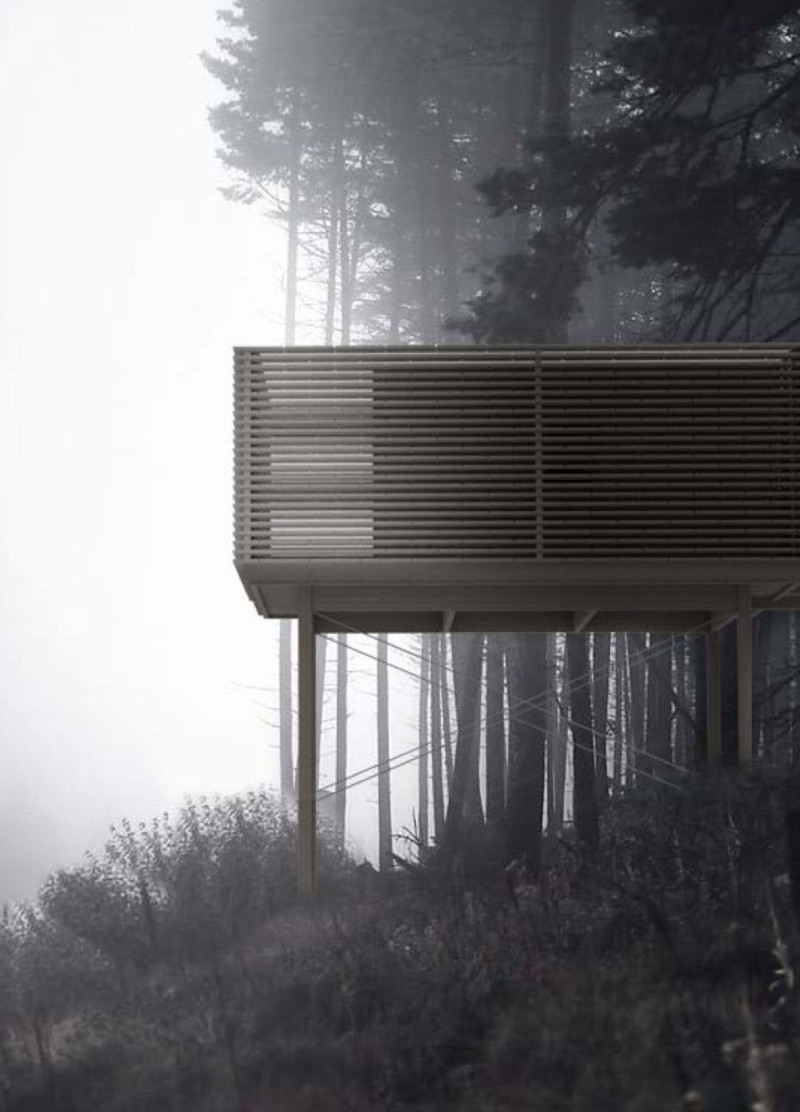5 key facts about this project
The meditation cabin is designed to create a space that encourages connection with nature and supports mental well-being. Located in a tranquil environment, it offers areas for meditation and various treatments. The design focuses on sustainability and enhancing the user experience. Each element is intricately planned to promote a sense of calm while allowing for diverse therapeutic activities.
Spatial Organization
The cabin features two main areas to serve different purposes. The Cabin is the primary treatment space where therapies like massage and aromatherapy occur. This area is protected from direct sunlight, which helps maintain a comfortable climate. Organized storage keeps tools easily accessible, ensuring therapists can work efficiently while maintaining a clean environment.
Materiality
Timber is the main material used in the cabin's construction. Sourced locally and air-dried, it connects the structure to its surroundings and supports sustainable building practices. The exterior timber cladding functions as a climate regulator, controlling temperatures inside the cabin. Its thickness allows for views of the surrounding landscape while keeping the space private.
Sensory Engagement
Beneath the cabin, a sensory garden has been integrated, featuring healing plants such as lavender and aloe vera. This garden adds a therapeutic layer to the overall experience, inviting people to engage with nature. A water system draws on used water from the cabin’s interior, providing efficient irrigation for the garden and minimizing waste.
Design Integration
The roof is equipped with solar panels that generate energy for the cabin. This feature highlights the commitment to environmentally friendly design. Over time, the sensory garden is expected to grow and intertwine with the timber screen, creating a stronger link between the building and the natural world. The evolving relationship between the structure and its environment enhances the overall experience for those who visit and use the space.





















































